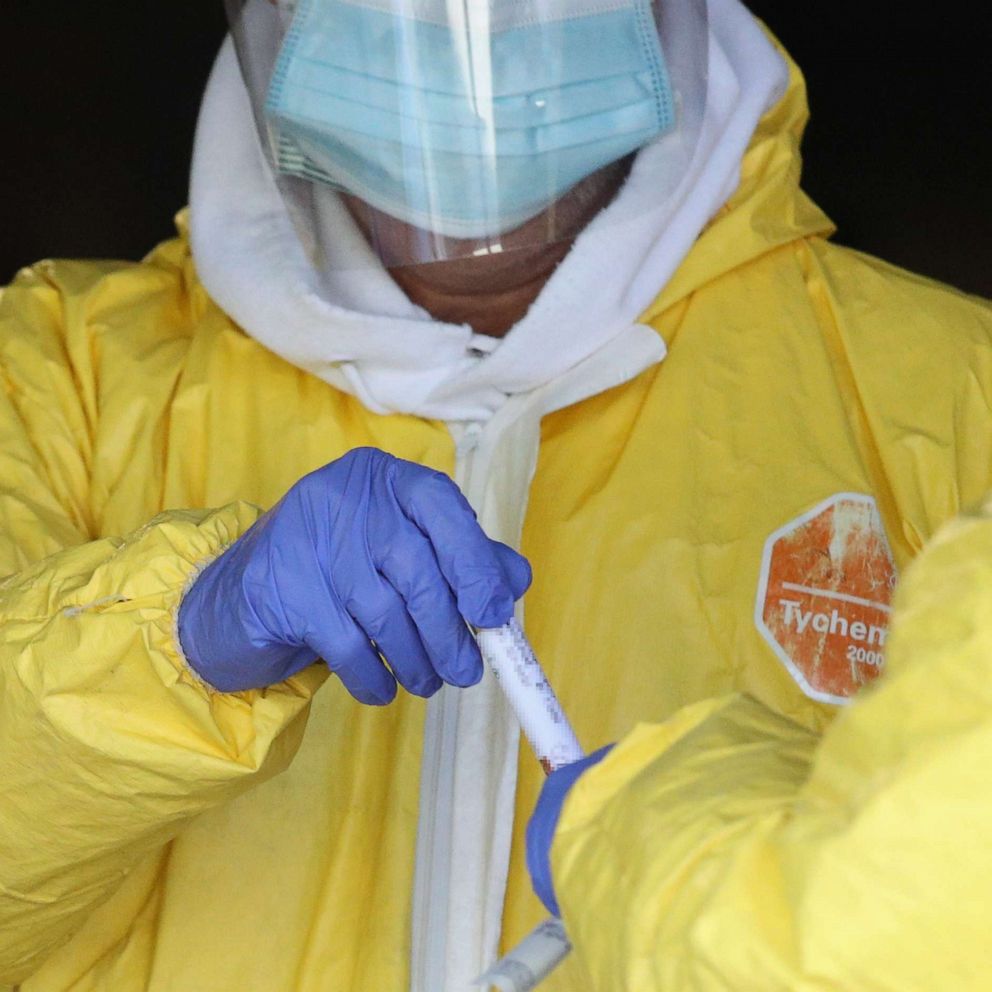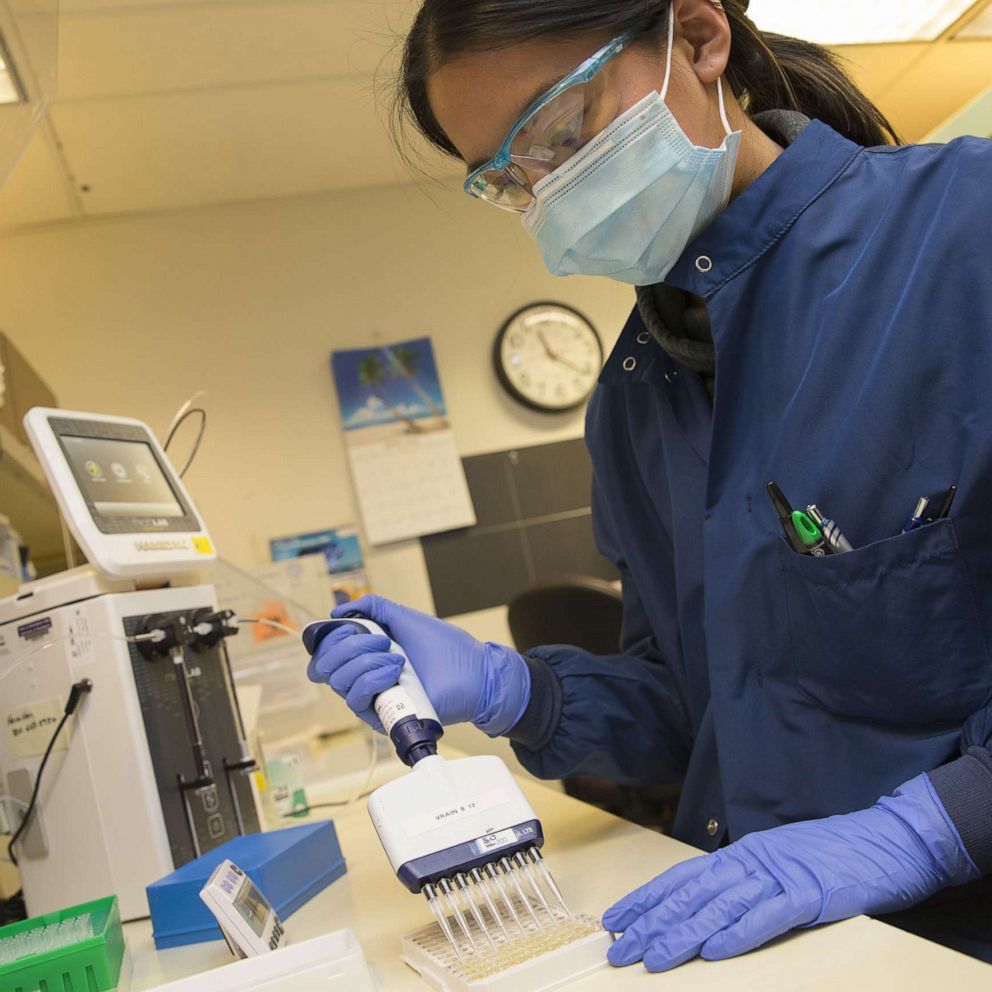Inside nursing homes, coronavirus brings isolation and 7,300 deaths; Outside, families yearn for news
Lawmakers demand stronger response, more tracking, more transparency.
Throughout March, sirens blared day and night in Brooklyn, as paramedics responded to the Cobble Hill Health Center. In Virginia's Henrico County, firefighters saw 911 calls spike from nearby Canterbury Rehabilitation & Healthcare Center. And in rural western New Jersey, an anonymous tip came to police about a body being stored in a shed outside the Andover Subacute and Rehabilitation Center.
These were some of the early signs of what is now a grim but clear reality: The novel coronavirus is exacting an enormous toll on nursing homes around the U.S., turning bingo rooms and fluorescent-lit cafeterias into viral stalking grounds for some of the nation's most frail and elderly citizens.
Now, that toll is impossible to miss. At least 7,300 people living in long-term care have died in the COVID-19 outbreak, a survey of state records by ABC News found. The actual count is very likely far higher, advocates for seniors believe, in part because the available data only covers 19 states where governors' offices and state departments of health have kept track. Other states do not yet report this data and did not reply to requests for this information.
As shocking reports of new clusters surface, lawmakers are demanding answers and advocates for the elderly are pleading for action to halt a rising death toll they called "absolutely devastating."
"I've never been so concerned about anything in my career," said Richard Mollot, executive director of the Long Term Care Community Coalition.
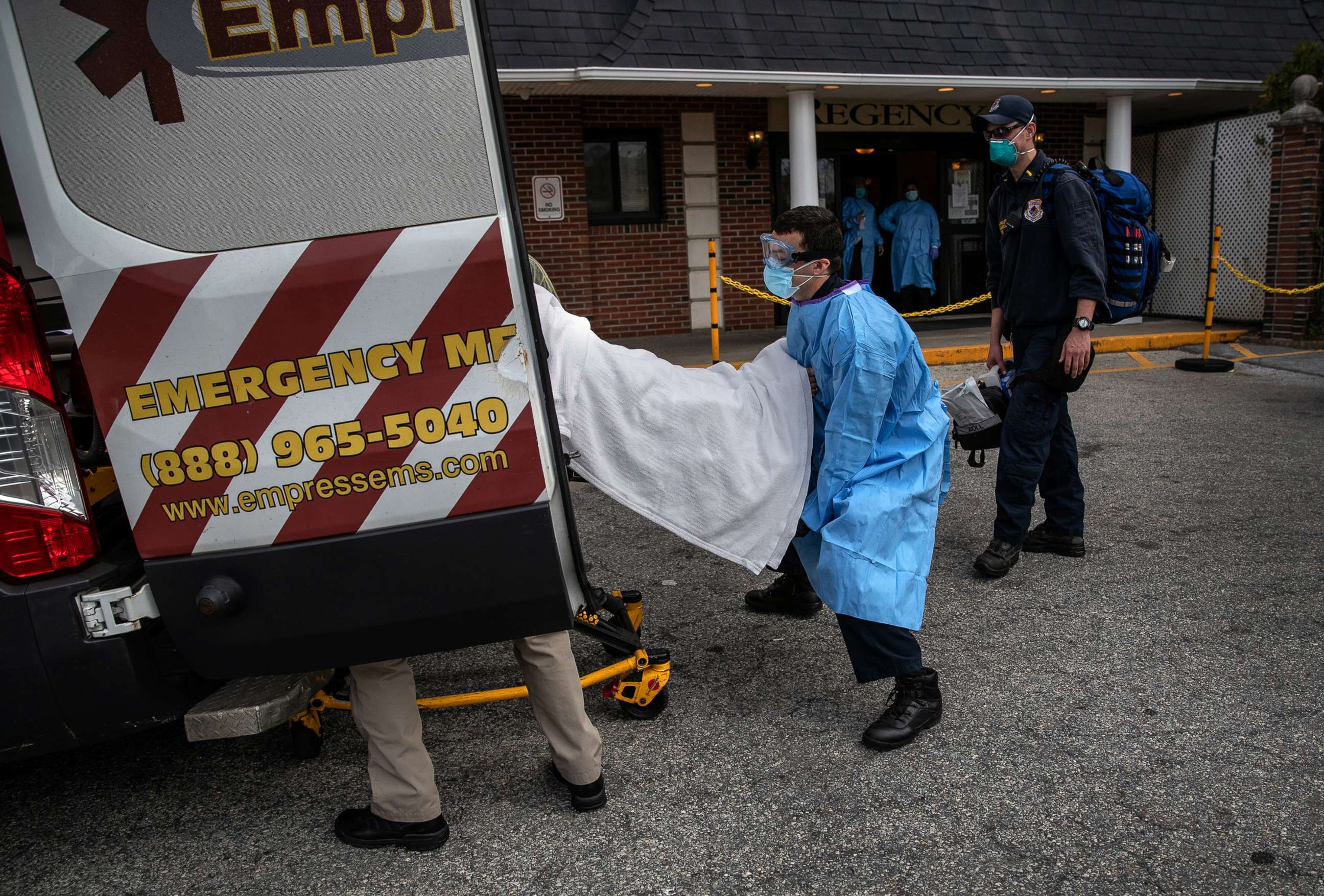
The numbers, bleak as they are, do not tell the story of worry, grief and fear that has faced those living in long term care and the relatives who wait outside, often with limited information about their loved ones.
With family members held at bay, unable to visit their loved ones, Carol Herman, president of the Foundation Aiding The Elderly, said the loss of life has only been exacerbated by a lack of information -- which nursing home officials have blamed on an inability to keep up with requests due to a combination of staff shortages and urgent care demands.
Imagine, she said, the distress of relatives who remain "in the dark about how nursing home patients are being protected."
By Thursday, Francesca Veen had spent two weeks trying to reach her grandmother Francesca Pensallorto, who lives at the Andover Subacute and Rehabilitation Center in New Jersey, where 68 residents have died since January and, more recently, where 17 bodies were discovered.
"I call and they ring, ring, ring and they transfer, transfer, transfer," Veen said. "We do not know if she's still with us. Unfortunately, she could be one of those bodies that they let pile up. ... How do you allow this?"
Nursing home officials, like Mutty Scheinbaum, who owns the 500-bed facility in Andover, have described what they say are "heroic" unseen efforts going on inside the homes to try and prevent loss of life. They "have been working relentlessly to contain the virus and safeguard our residents and staff," Scheinbaum said in a statement.
"It's been really, really tough," said Dr. Jim Wright, the medical director at the Canterbury home near Richmond, where 49 residents died over three weeks. "Patients were crashing and dying."
Homes appear to be quickly overwhelmed. In New Jersey, where 1,655 have died in 413 long-term care facilities, Gov. Phil Murphy said the disease "ignites."
"Our full focus must be on mitigating the spread of the virus and minimizing the impact of all who remain, in this case at the Andover facility, as well as all of our other longterm care facilities," Murphy said.
The federal agency that regulates nursing homes would not say if they are tracking the death toll, and advocates for the elderly allege the agency has not provided enough guidance to the homes for how to prevent and combat the spread.
On a conference call Wednesday, the Trump administration's head of the Centers for Medicare & Medicaid Services, Seema Verma, said her agency has tried to guide homes on infection control and emphasized new policies that encourage facilities to move quickly to relocate patients if needed.
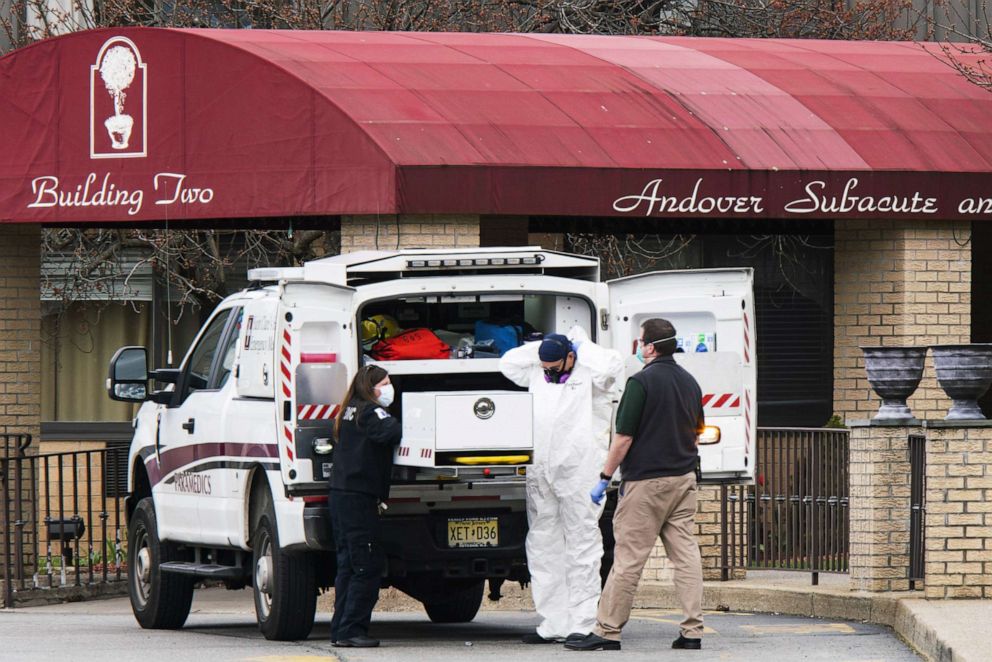
Senior members of Congress from both parties, alarmed by the rapid spread of cases, sent letters and signaled they would be planning hearings to air their concerns that the Trump administration response has been flat footed.
Republican Sen. Charles Grassley of Iowa said he was troubled by death toll, saying it was "especially concerning" given that "nearly two-thirds of the nation's nursing homes were cited for infection control failures in the recent past." Democratic Rep. Bennie Thompson of Mississippi wrote to the health secretary that the administration's efforts to ensure nursing homes have sufficient supplies "remains a mystery shrouded in confusion."
And Sens. Ron Wyden, D-Ore., and Bob Casey, D-Pa., wrote to Verma to ask why the administration "refuses to publicly disclose the names of nursing homes with cases of COVID-19. Not only is this information important for families, workers, first responders and community members, it is critical for public health experts so they can direct resources and help these facilities slow the spread of this terrible virus."
Mollot said that federal oversight of nursing homes has also been an increasing concern, even before the coronavirus pandemic.
"Oversight has always been poor, but over the last three years we've seen a tremendous decrease in both the strength of the rules and how they're enforced," he said. "Of course now we're seeing the repercussions of that. ... This is what has happened when we have good rules and standards that allow for dignity, that provide for adequate care, that can be tailored to the resident and his or her needs. And when those rules are flouted everyday with impunity and providers are rewarded for doing so, then we see what the outcome is ... a lot of harm, a lot of heartbreak that is unnecessary and preventable."
Verma has defended her agency's efforts to bolster infection control and said her agency is working urgently to improve the flow of information from long-term care facilities to both relatives and to the Centers for Disease Control and Prevention.
"I think we recognize that there should be some more reporting so we are currently engaged with the CDC around efforts to increase reporting of outbreaks specifically of COVID," Verma said on a conference call this week. "We want to make sure that we all have real time information about the status of COVID virus and nursing home."
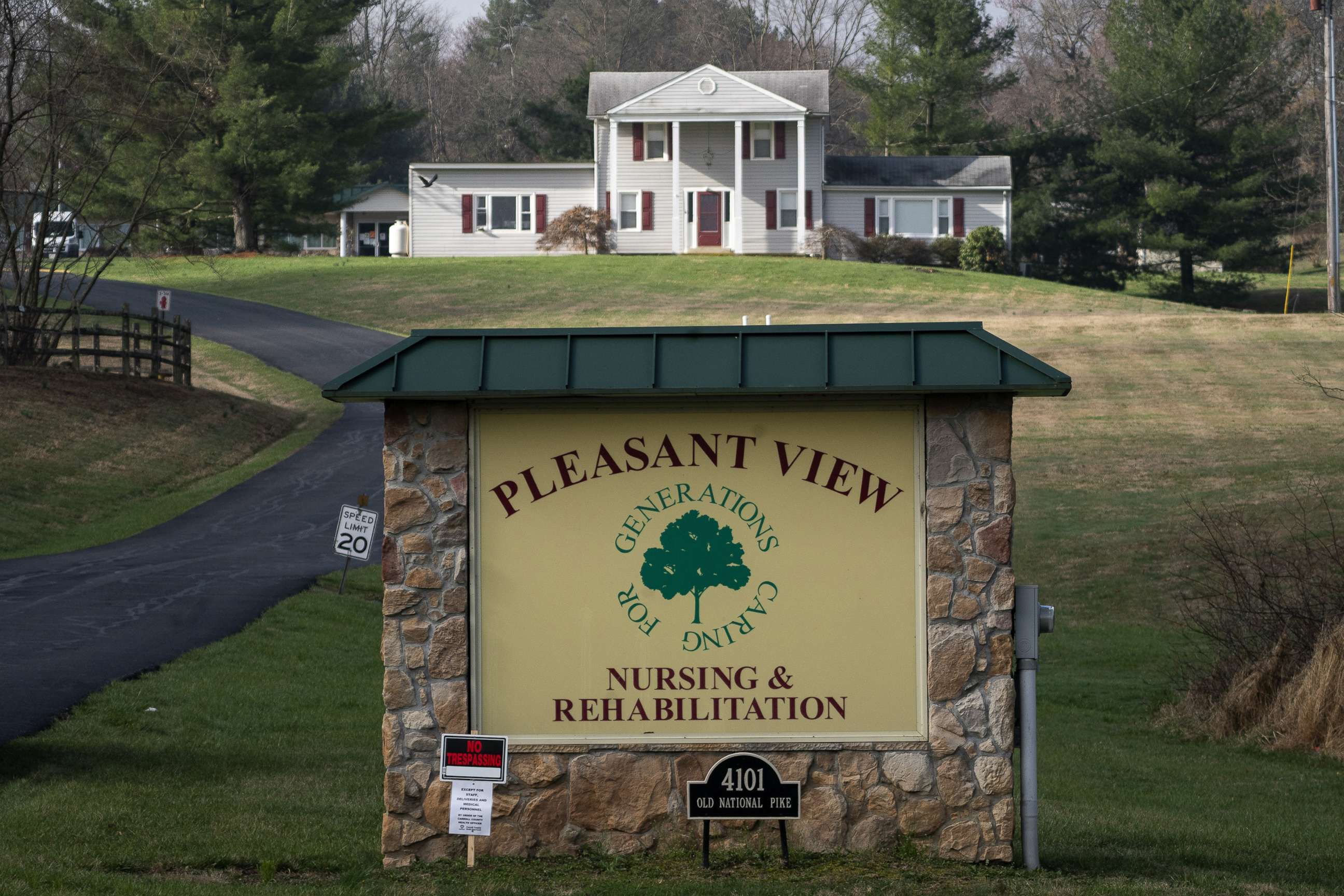
What is becoming clear as the scale of the problem is sinking in, measures must be taken to protect the well-being of vulnerable nursing home residents, said Robyn Grant, director of Public Policy and Advocacy with National Consumer Voice for Quality Long Term Care.
"We're concerned that the residents that don't have the virus need to be protected from it," Grant said. "At the same time we want to make sure that those who are getting [COVID-19] are getting the proper care that they need."
Grant said she is worried about the sense of isolation gripping nursing home residents right now.
"They're shut off from family in terms of visits," she said. "It may even be difficult for them to communicate with the outside world."
There was one glimmer of good news on Friday for Francesca Veen, the 25-year-old who had spent two weeks trying to reach her grandmother in the Andover facility. After dialing and dialing, she told ABC News, she learned that her grandmother was alive.
The two connected on FaceTime and shared a cry.
ABC News' Nadine G. Shubailat and Aaron Katersky contributed to this report.

